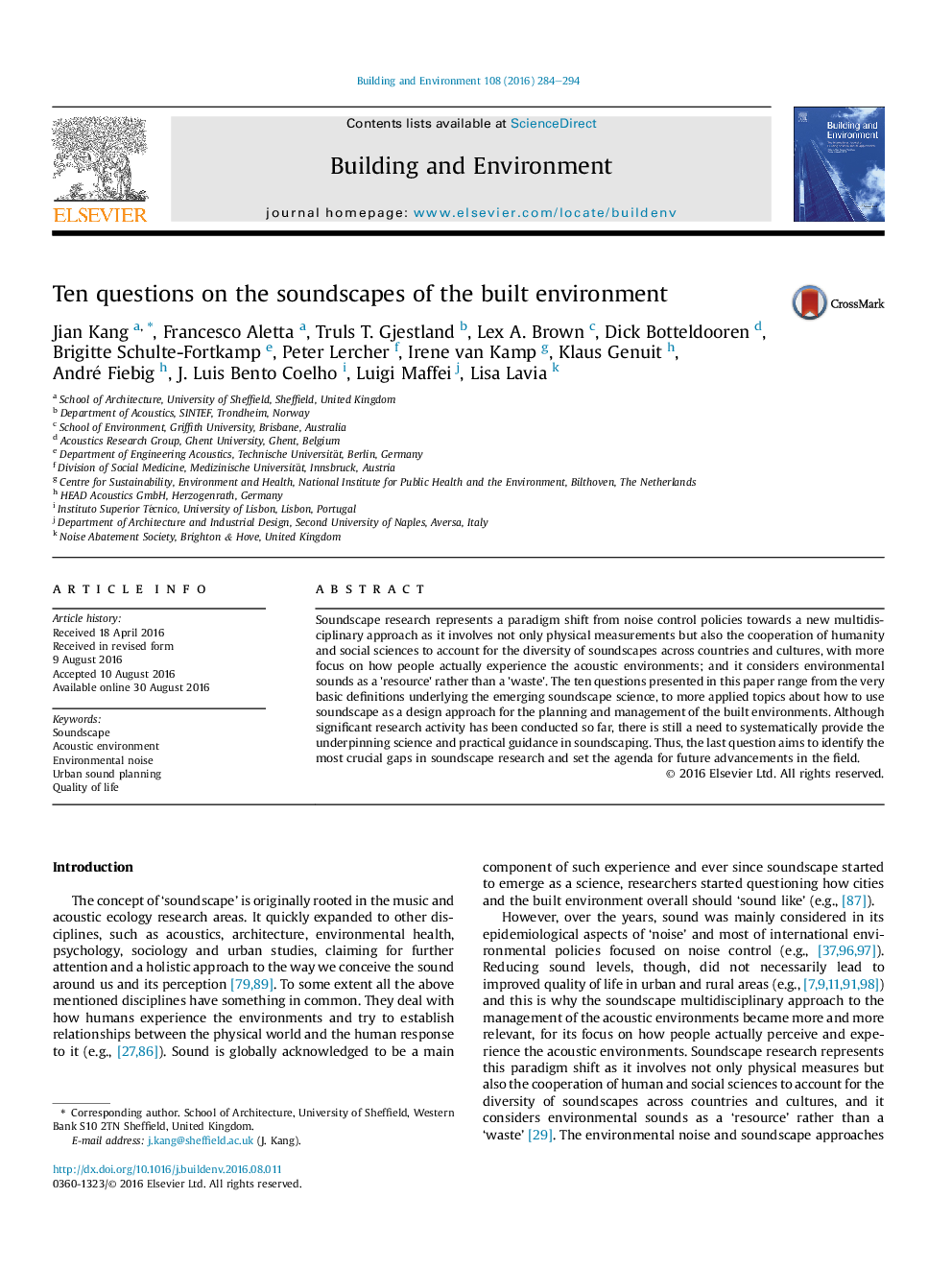| Article ID | Journal | Published Year | Pages | File Type |
|---|---|---|---|---|
| 6479275 | Building and Environment | 2016 | 11 Pages |
â¢Soundscape definitions are provided and discussed.â¢Methods for soundscape data collection and analysis are presented.â¢Future challenges to be addressed by soundscape research are identified.
Soundscape research represents a paradigm shift from noise control policies towards a new multidisciplinary approach as it involves not only physical measurements but also the cooperation of humanity and social sciences to account for the diversity of soundscapes across countries and cultures, with more focus on how people actually experience the acoustic environments; and it considers environmental sounds as a 'resource' rather than a 'waste'. The ten questions presented in this paper range from the very basic definitions underlying the emerging soundscape science, to more applied topics about how to use soundscape as a design approach for the planning and management of the built environments. Although significant research activity has been conducted so far, there is still a need to systematically provide the underpinning science and practical guidance in soundscaping. Thus, the last question aims to identify the most crucial gaps in soundscape research and set the agenda for future advancements in the field.
